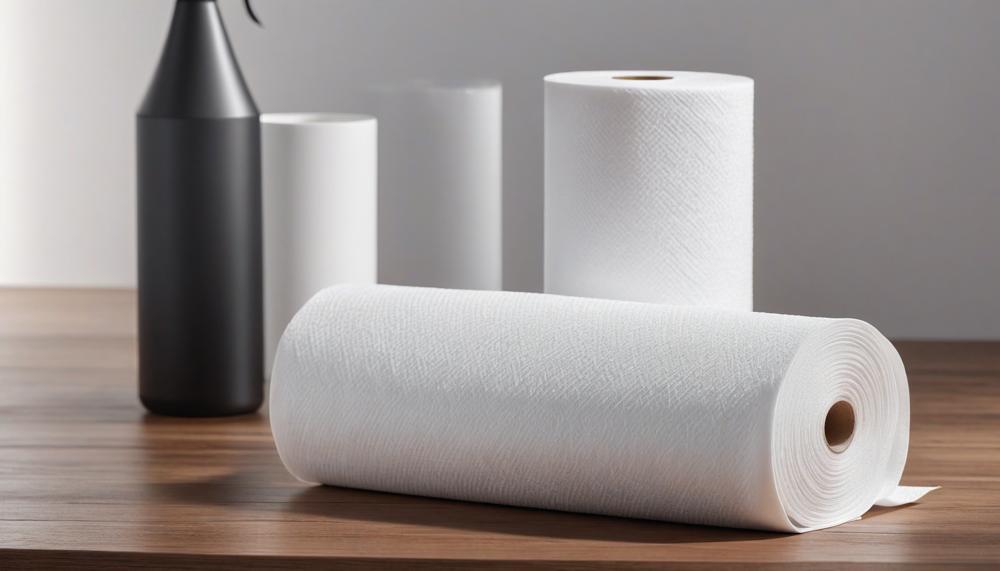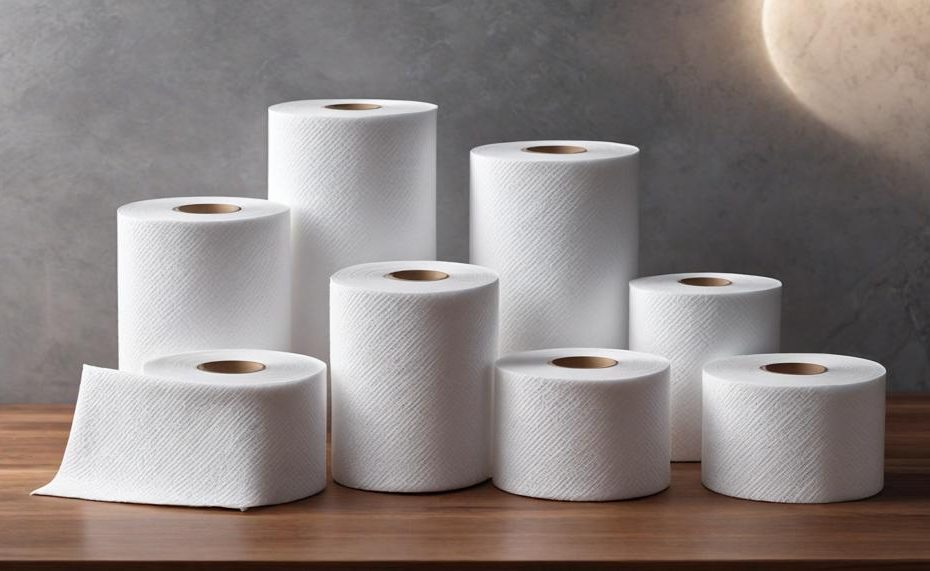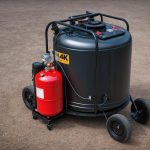How do you dispose of oily paper towels? It’s a question many face in kitchens and garages alike. Proper disposal of these greasy items is vital for both safety and environmental protection. Improperly discarding oily paper towels can pose significant fire hazards and contribute to pollution, making it crucial to handle them correctly.
Here’s a quick guide to help you navigate this often-overlooked aspect of waste management:
- Dry them out: Before disposal, let oily paper towels air dry completely on a non-combustible surface. This helps reduce the risk of spontaneous combustion.
- Store safely: Use a metal container with a tight-fitting lid for storing used oily paper towels. This prevents accidental fires and contains any potential leaks.
- Proper disposal: Check local regulations on disposal. Often, the safest bet is to take them to a designated waste facility.
- Avoid composting: Due to the oil content, oily paper towels should never be composted as they can contaminate the compost and harm the environment.
- Consider washing: If possible, wash oily rags instead of disposing of them. However, ensure they’re thoroughly cleaned to prevent oil buildup in drains and waterways.
By following these steps, you can significantly reduce waste build-up in your home and contribute to a safer, cleaner environment. Properly disposing of oily paper towels isn’t just a minor housekeeping task—it’s a responsible practice with far-reaching benefits.
Contents
How To Dispose Of Oil-Soaked Paper Towels And Rags
Safe and environmentally responsible ways to dispose of oil-soaked paper towels and rags are essential to prevent environmental harm and fire hazards. Here are effective methods:
| Method | Details | Environmental Impact |
| Drying and Storing Properly | Dry rags completely and store in a metal container. | Reduces fire hazard; safe for interim storage. |
| Using Hazardous Waste Disposal Facilities | Take to local facilities for proper disposal. | Prevents contamination and improper disposal. |
| Recycling Options | Find services that clean and reuse oil-soaked rags. | Reduces waste and promotes recycling. |
| Incineration | Controlled burning in approved facilities. | Destroys harmful substances; regulated process. |
| Spill Prevention and Waste Minimization | Use reusable absorbent materials and pads. | Reduces overall waste; promotes reuse. |
The Safest Way To Handle An Oil Spill in Your Garage

The safest way to handle an oil spill in your garage involves taking specific steps to properly dispose of oily paper towels. Here’s what you need to do:
- Contain the Spill: Immediately contain the oil spill using absorbent materials such as kitty litter, sawdust, or commercial absorbents.
- Clean Up the Oil: Use paper towels to soak up as much oil as possible. Be thorough to prevent any remaining oil from causing further hazards.
- Dry the Towels: Allow the oily paper towels to air dry in a well-ventilated area, preferably outside. Lay them flat and spread them out to dry completely, reducing the risk of spontaneous combustion.
- Store Safely: Once the towels are completely dry, place them in a metal container with a tight-fitting lid. A metal container is recommended because it reduces the risk of fire.
- Dispose of Properly: Take the container with the oily paper towels to a hazardous waste disposal facility. These facilities are equipped to handle such waste safely and in compliance with local regulations.
- Prevent Future Spills: Consider using spill containment trays or mats in areas where you commonly use oil to prevent future spills.
Why It’s Important To Dispose Of Oil-Soaked Paper Towels And Rags Properly
Disposing of oil-soaked paper towels and rags properly is vital to prevent fire hazards, environmental contamination, and health risks. When discarded carelessly, these materials can spontaneously combust, leading to fires that may damage property or even cause injuries.
Proper disposal methods include storing them in a sealed metal container and placing it in a safe, outdoor location.
Fire Hazard
Oil-soaked materials are highly flammable. When left in the trash, they can generate heat through oxidation, leading to spontaneous combustion.
This poses a significant risk of starting a fire, which can quickly spread.
Environmental Impact
Improper disposal of oil-soaked rags can lead to oil seeping into the soil and waterways. This contaminates the environment and poses a threat to wildlife and natural habitats. Proper disposal ensures that harmful substances do not pollute the environment.
Health Risks
Exposure to oil-soaked rags can be harmful to human health. They release volatile organic compounds (VOCs) that can cause respiratory issues and skin irritation.
Storing and disposing of them correctly minimizes these health risks.
Proper Disposal Method
To safely dispose of oil-soaked paper towels and rags:
| Step | Action | Details |
| 1 | Use a Metal Container | Place the oil-soaked materials in a metal container with a tight-fitting lid. |
| 2 | Seal and Store Safely | Ensure the container is sealed and store it outside, away from flammable materials. |
| 3 | Dispose at Hazardous Waste Facility | Take the sealed container to a local hazardous waste disposal facility for safe handling. |
What To Do If You Have An Oil Spill In Your Garage
Safely cleaning up and disposing of oily paper towels after an oil spill in your garage involves several critical steps to prevent fire hazards and environmental harm.
Drying and Storing
Allow the oily paper towels to air dry in a well-ventilated outdoor area, away from direct sunlight and flammable materials. Once dried, store them in a metal container with a tight-fitting lid.
Water Soaking
Alternatively, soak the oily paper towels in water immediately after use. Place them in a metal container filled with water and seal it tightly. This method helps prevent spontaneous combustion.
Disposal
Take the container with soaked paper towels to a local hazardous waste disposal facility. Do not dispose of them in regular household trash as they can still pose a fire risk.
Environmental Protection
Avoid burning oily paper towels or composting them, as the oil can contaminate soil and water. Proper disposal ensures environmental safety.
Conclusion
Handling oily paper towels properly is an essential practice to ensure both safety and environmental protection. Neglecting to dispose of these items correctly can lead to fire hazards and pollution, emphasizing the need for careful management.
First, allow oily paper towels to air dry completely on a non-combustible surface. This step reduces the risk of spontaneous combustion. Once dried, store them in a metal container with a tight-fitting lid to prevent any accidental fires and contain potential leaks.
It’s crucial to follow local regulations for disposal. Many municipalities have specific guidelines for hazardous waste disposal, and taking oily paper towels to a designated facility is often the safest option. Avoid composting these materials as the oil can contaminate the compost, posing further environmental risks.
For those who prefer a more sustainable approach, consider washing oily rags thoroughly instead of disposing of them. This practice not only reduces waste but also prevents oil buildup in drains and waterways.
By adhering to these steps, you can significantly mitigate safety risks and contribute to a cleaner environment.





